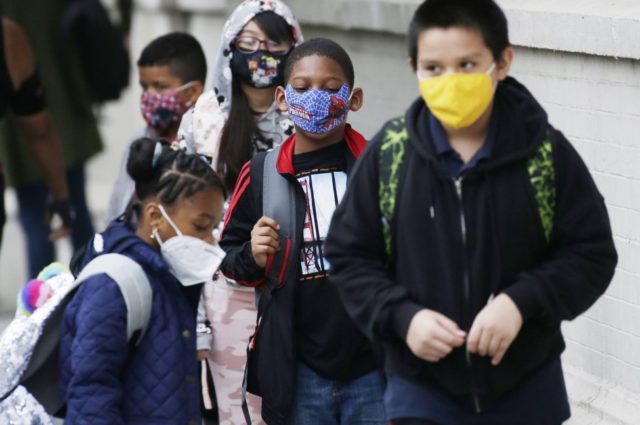Jan. 10 (UPI) — Children transitioned into remote learning during the COVID-19 pandemic displayed worse behavior at home than they normally would in school, their parents reported in a study published Monday by JAMA Pediatrics.
With many schools across the United States closed at some point because of the pandemic, parents of children who attended classes online at home said their kids more frequently engaged in “maladaptive” behaviors, or those that made it difficult for them to respond to life changes, the researchers said.
The children also experienced “dysregulation,” or an inability to control their emotions, the data showed.
This means children were more likely to have emotional outbursts or express frustration with being away from school and their friends, researchers said.
Many of the children also showed a reluctance to engage in remote learning activities and schoolwork — an attitude that was not present when they attended classes in person before the pandemic, the study said.
“Remote learning poses a challenge for children’s behavioral health and functioning,” study co-author Emily Hanno told UPI in an email.
“This aligns with what we know about how stress and disruption affect children’s behavior,” said Hanno, a post-doctoral researcher at the Harvard Graduate School of Education in Cambridge, Mass.
Stress caused by “disrupted, uncertain and shifting routines” can impact a child’s ability to “interact positively with others and manage their emotions and behavior,” she said.
Although many school districts nationally returned to in-person classes in the fall — some with COVID-19 vaccination requirements, masking and social distancing — some have opted to delay reopening after the recent holiday break due to spread of the Omicron variant of the virus.
With the spread of the strain first identified in South Africa in November, the United States has seen a rise in pediatric hospitalizations linked with the virus, the Centers for Disease Control said Friday.
These trends have led to a rise in concerns over the welfare of children, given that parents and caregivers reported increasing anxiety and depression among young people when schools closed in 2020 and 2021.
For this study, Hanno and her colleagues surveyed 348 parents of 356 children ages 6 to 8 years four times between Jan. 4 and May 23 last year, when some school districts across the country were forced to close facilities due to COVID-19 outbreaks.
During the first three waves of the survey, conducted in January, February and March-April, at least half of the children in the study were engaged in “fully remote” or “hybrid” learning due to the pandemic, the researchers said.
Fully remote learning means the children did not attend classes in person and, instead, participated in academic activities online, while hybrid approaches meant they attended school both in-person and online, according to the researchers.
More than half, or 57%, of the children in the study switched learning formats at least once during the study period, the researchers said.
While learning remotely, children “exhibited worse general behavior,” the parents reported.
Children in hybrid learning displayed better general behavior than they did “when remote,” but still “worse behavior than when in-person,” the researchers said.
“The turbulence of switching between learning formats likely affects children directly since they thrive with predictability and consistency,” Hanno said.
“But children are also likely indirectly affected by stress in their households as families adjust to remote learning and confront the broader public health conditions that drive the need for remote learning,” she said.

COMMENTS
Please let us know if you're having issues with commenting.